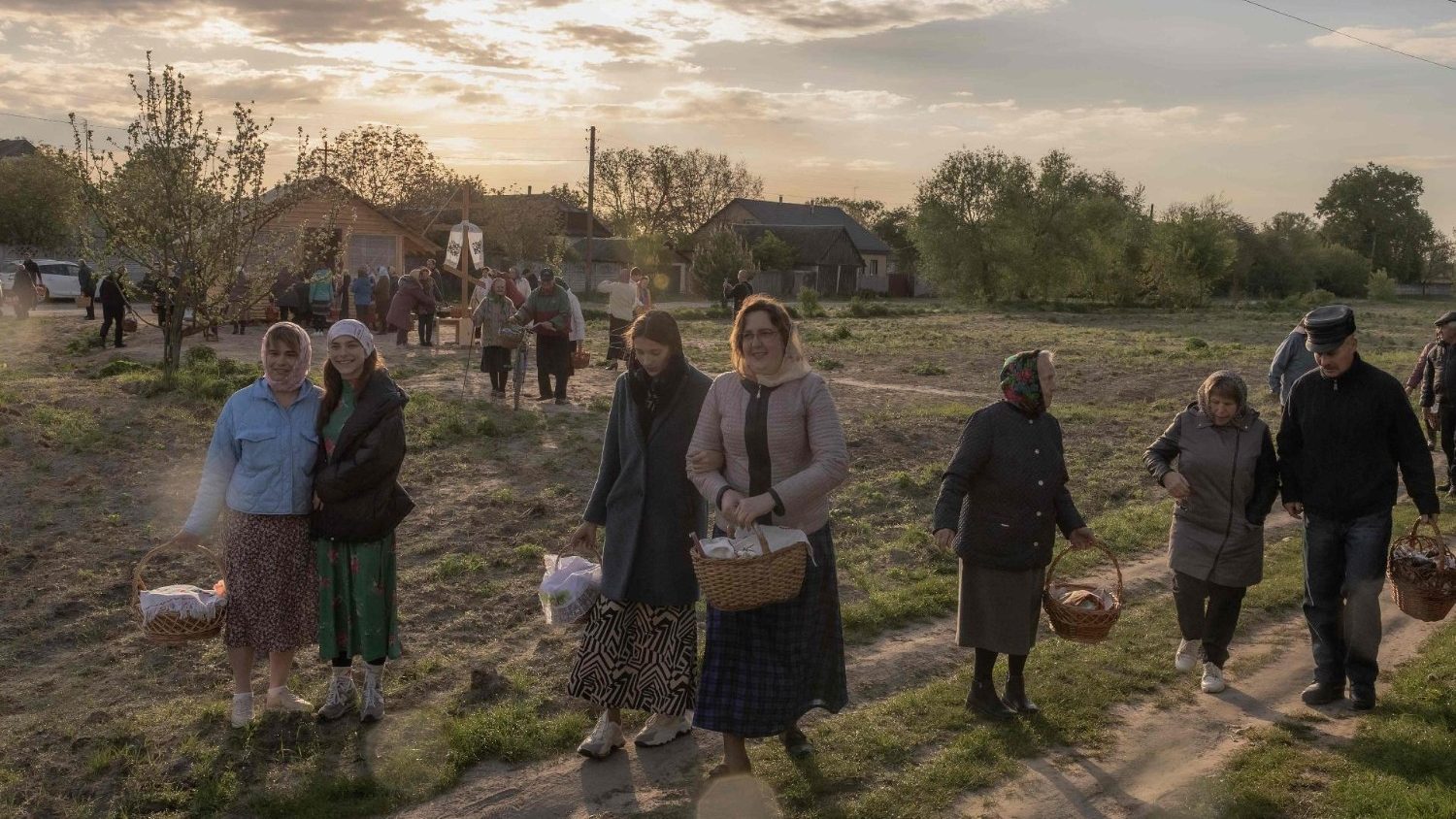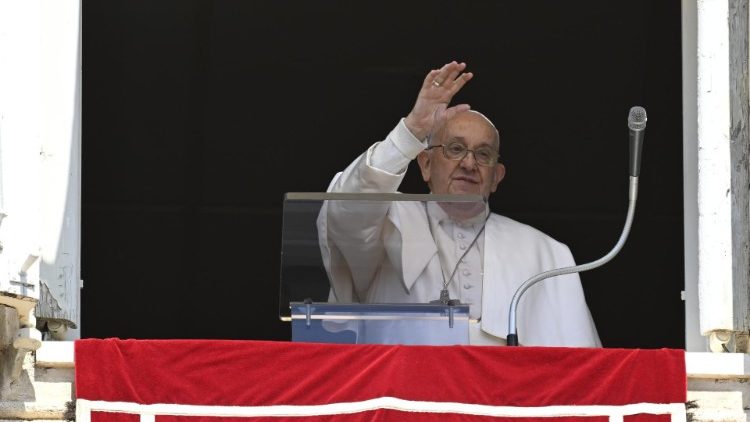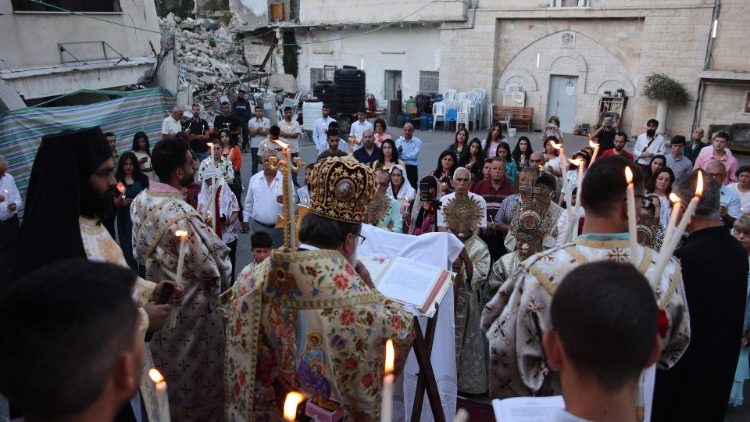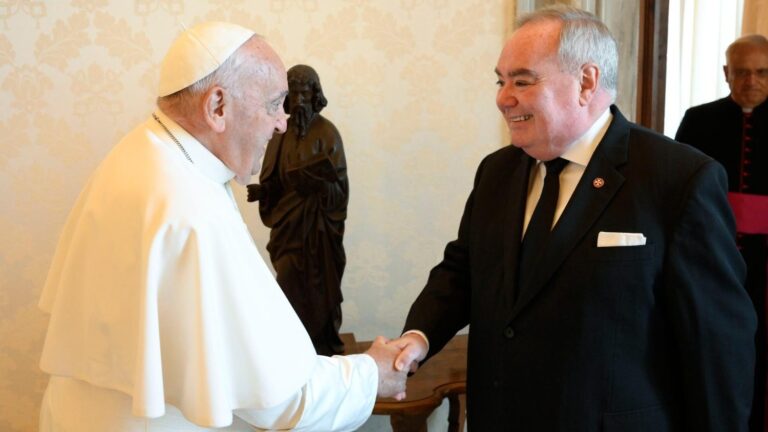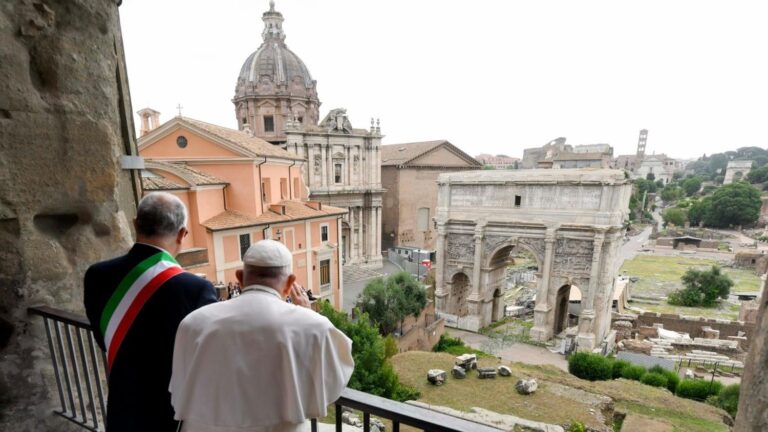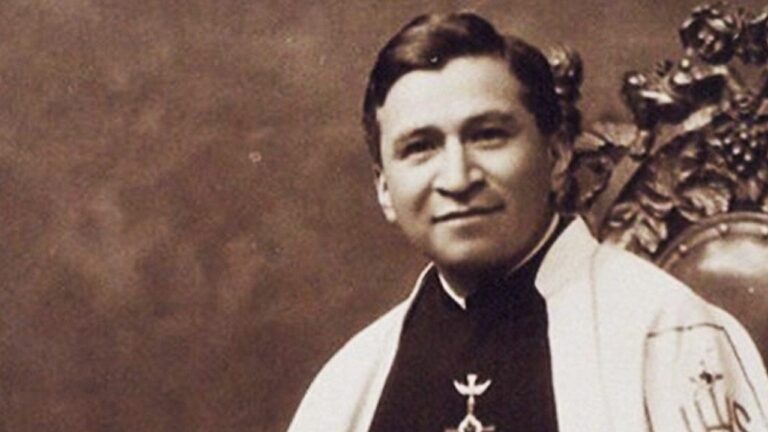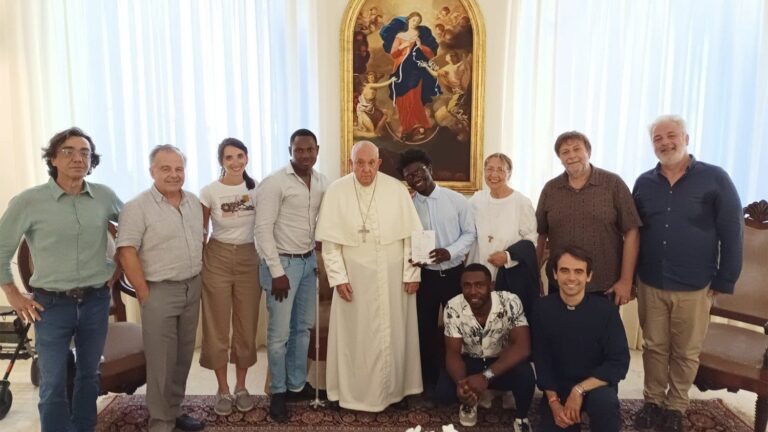Pope sends Paschal greetings on Julian calendar Easter
Vatican news
Pope Francis extends Easter greetings to Eastern Rite Catholics and Orthodox brothers and sisters who celebrate the Lord's resurrection according to the Julian calendar and prays for peace in Ukraine, Palestine and Israel.
By Nathan Morley and Christopher Wells
“With great affection, I offer my best wishes to our brothers and sisters of the Orthodox Churches and the various Eastern Catholic Churches who celebrate Holy Easter today, in accordance with the Julian calendar,” Pope Francis said on Sunday.
Eastern Christians, including Catholic and Eastern Rite Orthodox believers in Europe, Africa and the Middle East, celebrate Easter today, according to a calculation based on the Julian rather than the Gregorian calendar. “Julian” Easter (sometimes called “Orthodox Easter”) therefore normally falls later than “Gregorian” Easter, even if the dates sometimes coincide, as will be the case in 2025.
Speaking at the Regina Coeli, St. Peter's Square, the Holy Father prayed “that the risen Lord fill all communities with joy and peace and comfort those who face adversity.”
“Happy Easter to them! »
“No to war, yes to dialogue!”
Pope Francis also took the opportunity to once again ask for continued prayer for “tormented” Ukraine, as well as for Palestine and Israel – and especially so that “dialogue can be strengthened and bring good fruit.”
“No to war!” » he exclaimed. “Yes to dialogue! »
Julian Easter around the world
On Saturday evening, an important moment of Easter celebrations in the Holy Land, the “Sacred Fire” appeared in the Church of the Holy Sepulcher in Jerusalem. Orthodox Christians believe that the “holy fire” appears at Easter in the church as a result of divine intervention and consider the event miraculous.
Given the delicate security situation in the region and following meetings with the Israeli police, the clergy in charge of the 2024 event decided that no more than 4,200 people could attend the event in the church, located in the heart of the old town.
“Christos anesti!” Christ is risen!”
In many Mediterranean towns, bonfires were lit on Saturday evening after midnight services.
In Greek Orthodox and Coptic churches, worshipers greet each other with “Christos anesti,” which translates to “Christ is risen,” followed by the response “Alithos anesti,” meaning, “He is indeed risen!”
In a message to Greeks abroad, Greek Foreign Minister Giorgios Kotsiras said Easter sends a unique message to the entire world: “The triumph of life over death. For us Christians, this message is a source of joy and hope. The Resurrection expresses the defeat of darkness, the opening of the heart to one's neighbor.”
Vatican news
sc
